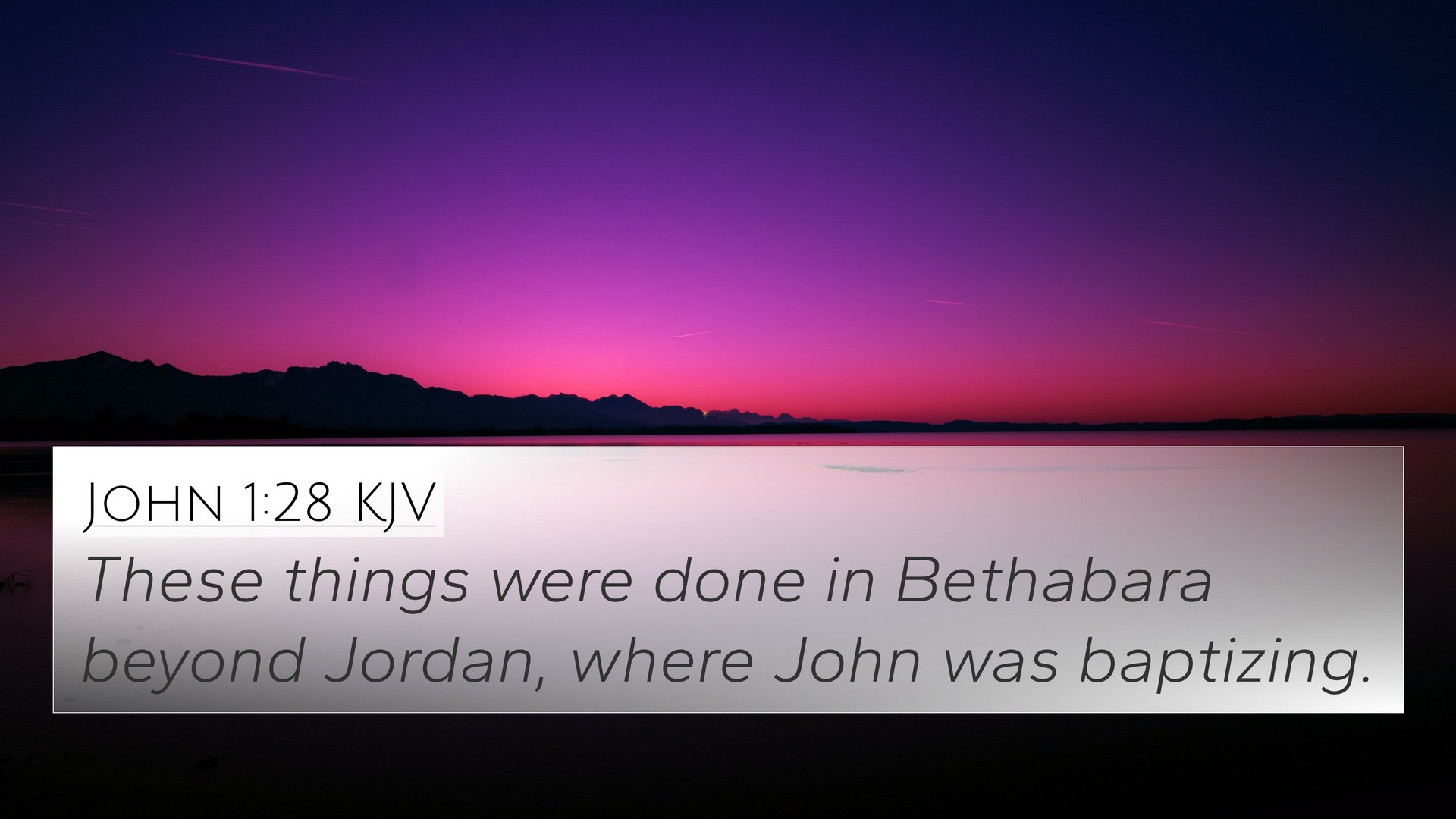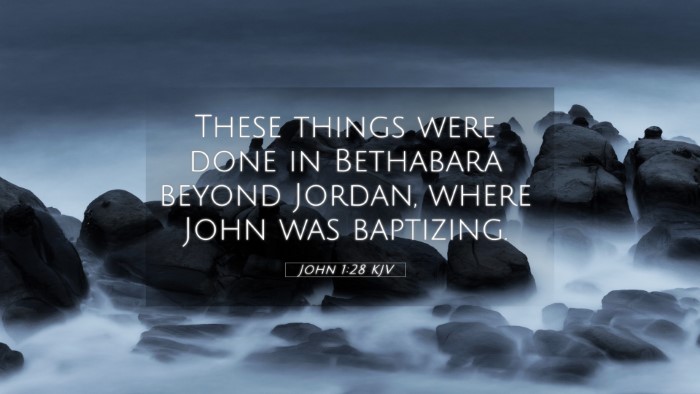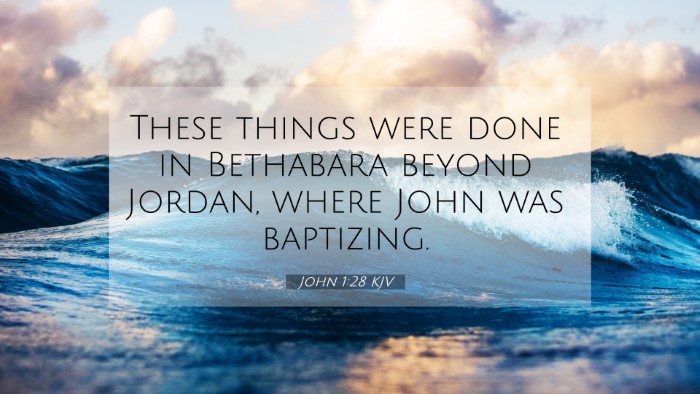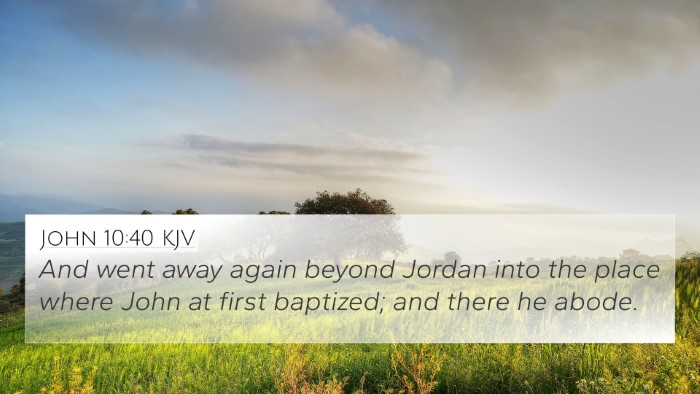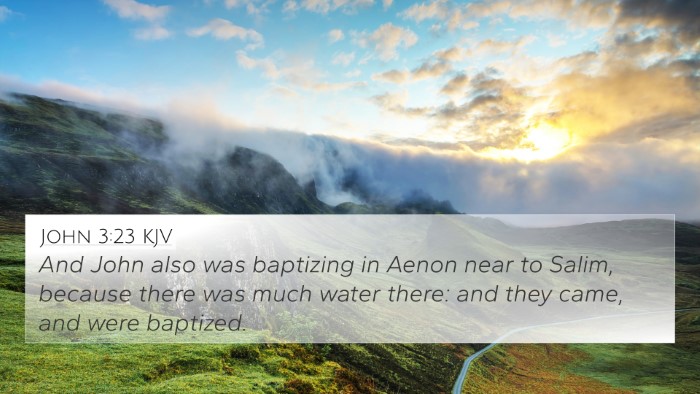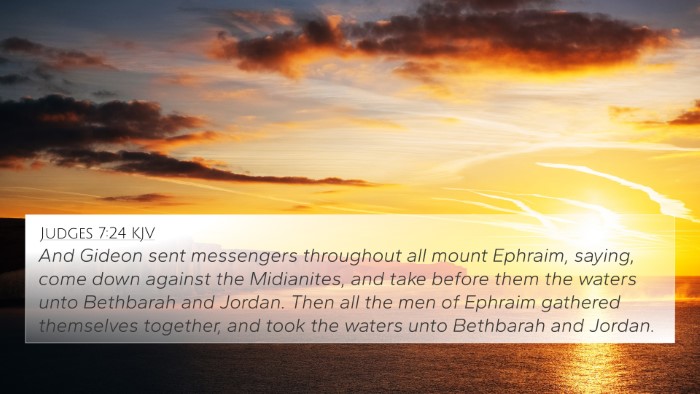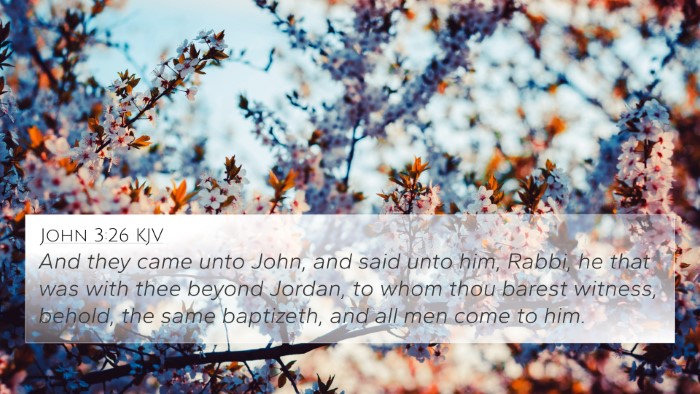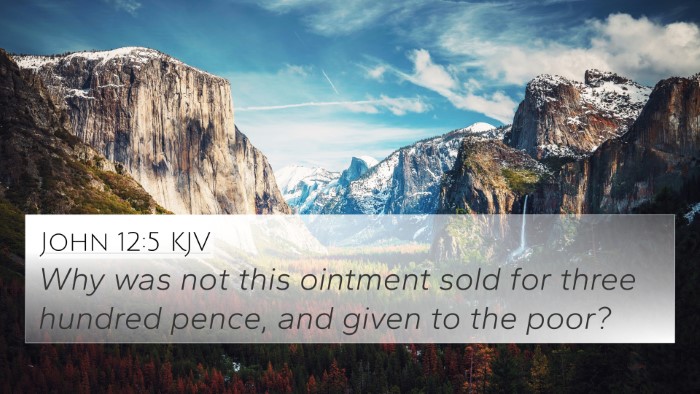Understanding John 1:28
John 1:28 (KJV): "These things were done in Bethabara beyond Jordan, where John was baptizing."
Introduction
The verse John 1:28 introduces the context in which John the Baptist was performing his ministry. It is crucial to understand the setting and significance of this location as well as the activities of John. Various commentaries offer insights into the historical, theological, and practical implications of the verse. Here, we summarize key interpretations from Matthew Henry, Albert Barnes, and Adam Clarke.
Contextual Analysis
John's ministry took place in Bethabara, beyond the Jordan River. This geographical detail is significant as it highlights the distance from Jerusalem, indicating a deliberate choice by John to minister in a place that was less conventional yet profoundly impactful.
Matthew Henry's Commentary
Henry notes that the location signifies the beginning of John’s public ministry, and it emphasizes his role as a preparer of the way for Christ. He underscores that John's baptism was not just one of water but a symbolic act pointing towards the coming of the Messiah. Further, Henry discusses the importance of the location by comparing it with other sites known for significant biblical events.
Albert Barnes's Commentary
Barnes provides a historical perspective, explaining that the name "Bethabara" means "house of the ford," which was a strategic location for travel and trade. This reference to Jordan signifies a place of transition, both literally and spiritually, as it was where the Israelites crossed into the Promised Land. He emphasizes that John's ministry marks a pivotal shift from the Old Covenant to the New, highlighting the significance of this baptism as a transformative act.
Adam Clarke's Commentary
Clarke goes into depth regarding the implications of baptism, noting its role in repentance and preparation for the Kingdom of God. He connects John’s action to prophecies found in the Old Testament, viewing it as the fulfillment of Isaiah's prediction regarding a voice crying in the wilderness. Clarke’s analysis reveals the anticipatory nature of this baptism, indicating that it serves to prepare hearts for the imminent arrival of Christ.
Thematic Connections and Cross-References
John 1:28 resonates with various themes within the Scriptures, particularly about baptism, repentance, and the transition from the Old Testament to New Testament theology. Below are some important cross-references that further elucidate this verse's meaning:
- Matthew 3:1-6: Details the ministry of John the Baptist, echoing the call to repentance.
- Luke 3:15-17: Discusses John's message and the expectation of the coming Messiah.
- Isaiah 40:3: A prophecy that directly foresees John’s role as a forerunner to Christ.
- Acts 19:4: Highlights the importance of John's baptism in identifying believers.
- John 3:23: References the locations where John was baptizing, emphasizing the significance of water in his ministry.
- Romans 6:3-4: Connects to the symbolism of baptism as a representation of death and resurrection in Christ.
- Mark 1:4: Affirms John's role as a baptizer who proclaimed the baptism of repentance.
Interpretation and Reflections
Understanding John 1:28 provides vital insights not only into the character of John the Baptist but also into the broader narrative of redemption throughout the Bible. Cross-referencing this verse with others allows for a deeper exploration of the connections between different biblical texts and themes. Here are some reflections based on public domain commentaries:
- Preparation: John's role emphasizes the theme of preparation in the biblical narrative, illustrating how God prepares His people for significant events.
- Repentance: The act of baptism linked to repentance underscores the importance of turning away from sin and toward God, a theme that recurs throughout scripture.
- Fulfillment of Prophecy: Highlighting the fulfillment of Isaiah’s prophecy demonstrates the continuity of God’s plan through the ages.
- Location Significance: The choice of Bethabara as a baptism site is intentional, showcasing the dynamic ways God interacts with His creation.
Conclusion
In conclusion, John 1:28 serves as a profound reminder of the preparing work of John the Baptist and the significance of baptism in the Christian faith. By employing tools for Bible cross-referencing and recognizing thematic connections, one can gain a more comprehensive understanding of scripture. As believers, applying these insights encourages a deeper engagement with the Word of God, promoting spiritual growth and insight.
